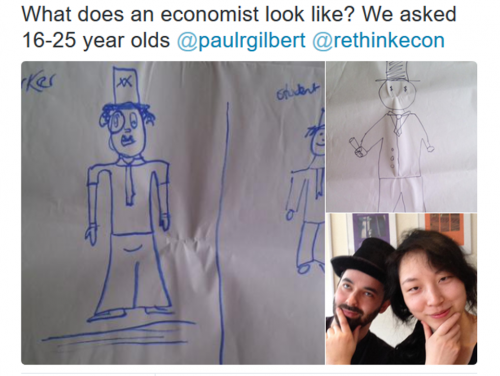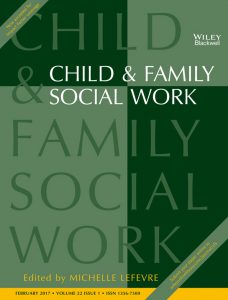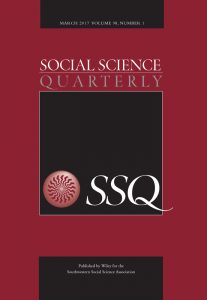The Rise of ‘Citizen Economists’ and ‘Economics Citizenship’ (Part 2)
In my previous post for Sociology Lens, I took a brief look at the sociological literature on ‘citizen science’ and ‘scientific citizenship’. My aim was to ask whether recent efforts to challenge the expertise of academic economists – and democratize economic knowledge – might be understood in parallel terms, as matters of ‘citizen economics’ and ‘economic citizenship’. ‘Citizen science’ has largely come to be discussed as a matter of collaboration with or working under the direction of professional scientists, although there is an earlier understanding of ‘citizen science’ as that which challenges scientific authority. As for ‘scientific citizenship’, sociologists and publicly-engaged scientists (especially those working on climate change issues) have begun to emphasize the importance of engaging in political and policy debates “not as experts but as ‘scientific citizens’.” Some, like Bruno Latour, have even argued against keeping ‘clear water’ between science and policy, suggesting instead that all scientific citizens and public experts must recognize that they are a ‘lobby’ for some kind of common future, whether they speak for the IPCC or for a multinational oil corporation. In this follow-up post, I want to take a look at a couple of emerging initiatives that might be thought of as making space for ‘citizen economics’ and ‘economics citizenship’. I also want to ask why it might be that citizen economics/economics citizenship initiatives have faced more of an uphill struggle when compared to the now fairly well-established (albeit largely domesticated) practice of ‘citizen science’.
‘Citizen Economics’ & Monetary Reform
In the first part of this post, I briefly discussed Harry Collins and Robert Evans’ work on expertise in the sociology of science and technology. Collins’ ‘Sociology of Expertise & Experience’ programme is seen as a successor to earlier studies in the ‘Sociology of Scientific Knowledge’, which seemed to show that the development of scientific knowledge could often be explained in sociological rather than epistemological terms. Scientists, it seemed, did not have a particularly privileged access to the ‘truth’. Or, put differently, when seeking scientific consensus, scientific and technical debates are often closed by drawing on ‘extra-scientific factors’, rather than ‘pure rationality’. (Uri Shwed and Peter Bearman’s American Sociological Review piece shows nicely the process of consensus formation – often fuelled by clearly ‘extra-scientific’ concerns and interests – in the scientific literature on what is now a fairly ‘closed’ debate, regarding the causal link between smoking and cancer.) Collins and Evans take this insight about ‘extra-scientific’ factors to mean that experience, rather than truth, should be the foundation of expertise, and that “the basis of technical decision-making can and should be widened beyond the core of certified experts.” So, rather than utterly dissolving the boundaries between ‘experts’ and ‘laypeople’ (which is one way to deal with the recognition that scientists don’t always have privileged access to truth, or arrive at consensus through pure rationality), Collins and Evans propose a model where certified experts and ‘un-certified’ specialists may share expertise derived from experience. In turn, these uncertified specialists may possess far greater expertise than ‘certified’ experts who operate even slightly outside their core, certificated area of competence.

Image source: Collins, H.M. and Evans, R. (2002) ‘The third wave of science studies: studies of expertise and experience’. Social Studies of Science, 32: 235-296. (p. 250).
In later work, Collins and Evans have developed a ‘periodic table of expertise’ distinguishing between layers of tacit expertise (‘popular understanding’), specialist tacit expertise (‘contributory knowledge’) and ‘meta-expertise’ which may endow you with the capacity to judge other bodies or forms of expertise. The aim of this exercise is to solve the ‘problem of legitimacy’: if we accept that some ‘uncertified’ experts are as competent as some certified experts, then we must ask exactly whose expertise should be incorporated into technical decision-making?
So what might this have to do with citizen economics? Well, one clear example where certificated expertise has been challenged in a big way during the last few years comes from a Bank of England bulletin, released in 2014. The bulletin contained the following explosive sentence: “This article explains how, rather than banks lending out deposits that are placed with them, the act of lending creates deposits – the reverse of the sequence typically described in textbooks” (emphasis added). Clearly, here we have a small group of certificated experts challenging the prevailing textbook ‘consensus’ (adhered to by the majority of certificated economists) on how money creation works. And this is not a minor technicality. The fact that the act of lending creates deposits really does matter.
In a recently published paper, Richard Werner – a Professor of International Banking who coined the term ‘quantitative easing’ – dissects the currently popular ‘financial intermediation’ theory, the previously dominant ‘fractional reserve’ theory, and the marginalized (but correct, he would argue) ‘credit creation’ theory of banking, and conducts an experiment using a bank’s IT system to investigate which seems most likely. Werner shows that contemporary textbooks – those which the Bank of England bulletin suggests are wrong – tend to focus on the ‘financial intermediation’ theory, explaining what banks do precisely in the terms Paul Krugman used in late 2015 when he asserted that: “banks make their profits by taking in deposits and lending the funds out at a higher rate of interest.” The fractional reserve theory, meanwhile, suggests that banks are intermediaries, but may collectively multiply the amount of money in a system. According to this view, banks are required to hold set reserves, but as they make new loans which become the deposits in other banks, the amount of money in a system expands or ‘multiplies’. (One initial £1000 loan, with a reserve requirement of 20%, can lead to £5000 in the system, with £1000 in ‘cash reserves’ and £4000 of loans making up banks’ assets, and £5000 of deposits making up the banking sector’s liabilities.)
Werner’s paper details how his experiments seem to confirm the credit creation, or money-creation-through-bank-lending theory, and he discusses the consequences of adhering to the now discredited financial intermediation and fractional reserves theories when it comes to regulation. First off, the fractional reserve theory can hardly be taken seriously (and has mostly been abandoned by central bankers) when some countries (including Sweden and the UK) do not even have reserve requirements. The ‘reserves’ that banks do hold with central banks never leave those accounts, and never enter circulation where they can ‘multiply’ up the amount of money in a system. More worrying, though, is the form taken by regulation that assumes financial intermediation to be true, in a system where money-creation-through-bank-lending actually takes place. Financial intermediation theory (currently dominant in textbooks and among regulators) informs regulation based on ‘capital adequacy’ requirements. But, Werner notes, the fact of money-creation-through-bank-lending means that banks are able to create their own ‘adequate’ capital. In 2008, Barclay’s was able to increase its equity capital by creating money (in the form of a loan) to a consortium of investors who then purchased their preference shares. As Werner notes, this effectively entails “the customer’s borrowed money appear[ing] as the fictitious customer deposit on the liability side.”
Not only this, but as Ib Ravn notes in a recent Real-World Economics Review paper on public education tools for explaining money-creation-through-bank-lending, the system that allows bank deposits to be created through the act of lending is a key contributor to asset bubbles. As such, it “deserves to be widely appreciated, not only by economists and finance and banking professionals, but also by the general public.” (See here for a look at how creating billions of pounds of ‘new money’ as mortgages and property development loans has contributed to the UK’s housing bubble.) Indeed, as Ole Bjerg writes in the newly-launched open-access journal Finance & Society, the fact of money-creation-through-bank-lending even has implications for how we think about class (and revolution). In today’s world, “class position is…determined by the subject’s position relative to the network in which credit money is created and circulated…The capacity not only to make money but also to make money simply by making money is the defining privilege of the ruling class of creditors…But few people are in a position where they can create a debt that functions as money.”
It seems reasonable to view the creation of public education tools like Ravn’s, and the open-access circulation of ideas about money-creation-through-bank-lending (not to mention the efforts of campaigns like Positive Money*), as oriented towards promoting a type of ‘citizen economics’. If this kind of citizen economics shares something with citizen science, it is perhaps less in terms of ‘collaboration’ with certificated experts, and more in line with an earlier, confrontational form of citizen science. Many of the public education campaigns engaging with money-creation-through-bank-lending are made up of alliances of certificated economists and other kinds of less formal specialists (as per Collins and Evans’ ‘Wave Three’ diagram above), who find themselves confronting widely held views supported by celebrated and famous public figures (like Paul Krugman). In Collins and Evans’ terms, what is at stake in promoting ‘citizen economics’ is the shift from closely guarding the “esoteric science” of banking where “the public merely watches as disputes play out,” to situations where “the apex of certainty becomes public property.”
Economics Citizenship?
Clearly, where economics is concerned, ‘science’ and ‘policy/politics’ are never as separate as they might sometimes appear to be with regard to, say, climate change. Werner’s vision for economics is one “based on a rigorous application of the scientific inductive methodology,” but the policy and political implications of his inquiries into credit creation are pretty clear. So what would it mean for economics experts to act as good ‘economic citizens’, paralleling the efforts of their colleagues in climate science? And if we take the application of Collins and Evans’ work to the natural sciences seriously, what does it mean for identifying economic expertise? Who gets to count as a ‘citizen economist’ and who gets to enact ‘economics citizenship’?
Curiously enough, while influential academic and Bank of England economists have recently challenged aspects of their own discipline’s claims to ‘expertise’, and called for economists to learn from philosophy, sociology and psychology, certificated expertise still seems to trump uncertified experience – at least on a rhetorical level (perhaps implying that many people still understand economics expertise in terms of ‘Wave One’ on the Collins and Evans diagram above, where a small class of experts has a privileged access to the truth.) Consider the Adam Smith Institute’s response to a 2011 letter, signed by 52 economists, challenging the UK government’s spending cut-led deficit reduction strategy. The response is titled ‘Economists? What Economists?’ and separates out as ‘non-economists’ retirees, economists who (despite academic appointments) are also campaigners, and those who are not found in Economics departments, but in neighbouring disciplines like Organizational Studies and Social Policy. Or, consider the more recent (and far less curmudgeonly) call from the QE for People movement to sign a letter endorsing their proposals: “economist qualification required.”
How can economic expertise be recognised when the claims of certificated experts are routinely discredited? Perhaps one of the difficulties involved in drawing comparison between ‘citizen science’ and ‘scientific citizenship’ on the one hand, and ‘citizen economics’ and ‘economics citizenship’ on the other, is that movements to create citizen economists – like the recently launched Economy project – are explicitly pluralist. They do not seek to impose closure on scientific controversies, or even to create consensus. Creating pluralist citizen economists perhaps means embracing the Latourian view (see above) that all experts are ‘lobbyists’ for some kind of future, and translating debates over expertise into debates about democratic politics. As Chantal Mouffe has suggested, “If you value pluralism, then you will have to be alive to the idea that the impossibility of democracy [where everyone agrees] or some final goal is not an impediment, or something negative.” How one might do this without abandoning some grounding for expertise – and so acting as if expert status is merely a matter of performance and attribution – remains to be seen. Perhaps, borrowing from Collins and Evans’ periodic table of expertise, movements to create citizen economics might be divided between those aiming to promote ‘popular understanding’, ‘contributory expertise’ (which seems likely to be resisted as long as erstwhile experts lack certification), or a kind of ‘meta-expertise’ which enables non-certificated economists to distinguish between different forms of economic argument – such as between financial intermediation, fractional reserve and credit creation theories of banking.
*See here for a review of the intellectual & political lineage of ‘full reserve banking’ within which Positive Money places itself, and here for a recent critique of their policy proposals.






1756-2589/asset/NCFR_RGB_small_file.jpg?v=1&s=0570a4c814cd63cfaec3c1e57a93f3eed5886c15)
